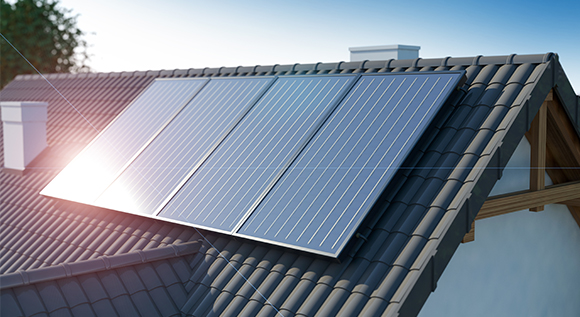Heat from renewable energy: 20 years of the Market Incentive Programme
The Market Incentive Programme 'Heat from renewable energies' (MAP) gives citizens, companies and municipalities the opportunity to secure large government grants. The programme has been running for two decades and is a massive success.
 © Studio Harmony
© Studio Harmony
On 1 September 1999, the Guidelines on the funding of measures for using heat from renewables entered into force. This was when the energy transition really started to gather pace for the first time. But even twenty years on, using renewables-based heat is still not out of fashion. Back then, the Federal Republic of Germany had just celebrated its 50th anniversary. In the same month, Boris Becker and Steffi Graf announced their retirement from tennis, and tickets for their last games were still paid for in Deutschmarks. Alongside the Renewable Energies Sources Act, passed one year later, the Market Incentive Programme 'Heat from renewables' is one of the pioneer achievements in energy policy. It has been in high demand ever since its launch, and continues to generate big successes.
Modern, renewables-based heating systems very worthwhile
Old heating systems are often inefficient, very expensive to run, and harmful for the climate. Installing a new, MAP-funded modern system that uses renewables is therefore particularly worthwhile. The level of funding provided depends on the type, size and efficiency of the selected heating system. Funding is primarily provided for solar collectors, systems that burn solid biomass, and efficient heat pumps. Financial support is also available for especially innovative renewables-based technologies for heating and cooling, and the subsequent optimisation of systems that have already received funding. Where different technologies eligible for funding are combined, the amount of funding can be especially high. Now, twenty years after it was first launched, the Market Incentive Programme has a great deal of success to show.
23.7 billion euros invested in heat from renewables
More than 1.8 million heating and cooling systems based on renewables have been funded since 1999. Funding is provided for small heating systems in detached and semi-detached houses as well as for large systems used by businesses or in municipal buildings. Since the programme first started, the Federal Government has paid out grants totalling more than 3.8 billion euros. This has stimulated investment of over 23.7 billion euros.
The government grants have also benefited the environment: in 2017, MAP-funded projects saved 394,794 tonnes of C02 equivalents from being released into the atmosphere. This is equivalent to the emissions released when 470,000 passengers travel from Düsseldorf to Mallorca. C02 equivalents are a unit of measurement for standardising the climate impact of the various greenhouse gases.
Around 35 per cent of final energy consumption in Germany is used for heating and hot water
The heat market plays an important role in the energy transition. This is because around 35 per cent of Germany’s final energy consumption is used for heating and hot water. The heating systems that were funded in 2018 alone will be able to save more than six million tonnes of C02 from being emitted over a service life of 20 years. This is almost equivalent to the volume of carbon emissions released by the city of Bremen in 2017. The Federal Government has set itself the target of raising the share of renewables in the heat market to 14 per cent by 2020. The funding provided under the MAP programme has been, and continues to be, an important component in this.
The State Secretary at the Federal Ministry for Economic Affairs with responsibility for energy policy, Mr Andreas Feicht, has already confirmed that this target has been met: 'The 2020 target for renewable energy in heat consumption was met in 2018. We now need to continue our efforts so that we remain on course to achieve the ambitious goals set for the long term.'
Heat pumps are the big hit under the MAP
In the first half of 2019, demand for funding was highest for heat pumps, with a total of 14,289 funding applications being submitted. This is the figure reported by the Federal Office for Economic Affairs and Export Control (BAFA) which, together with KfW, is responsible for implementing the Market Incentive Programme on behalf of the Federal Ministry for Economic Affairs and Energy. In the same period, BAFA also received 12,500 applications for funding for biomass installations and 8,737 for solar collectors.
How to obtain funding
Applications for the coveted MAP funding can be made by private persons, freelancers, charities, municipalities, municipal associations, companies and energy service providers (the contractors). With the help of energy advisers, applicants can select a suitable heating system that is eligible for funding in advance, and can submit their application online to either BAFA or KfW. Those applying are notified as to whether their heating system can be funded before they purchase it.

